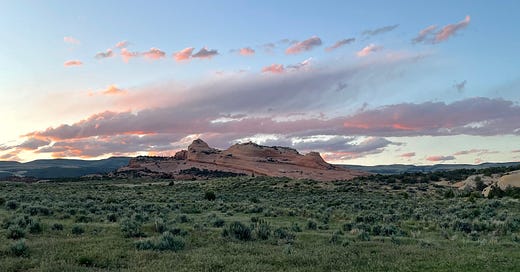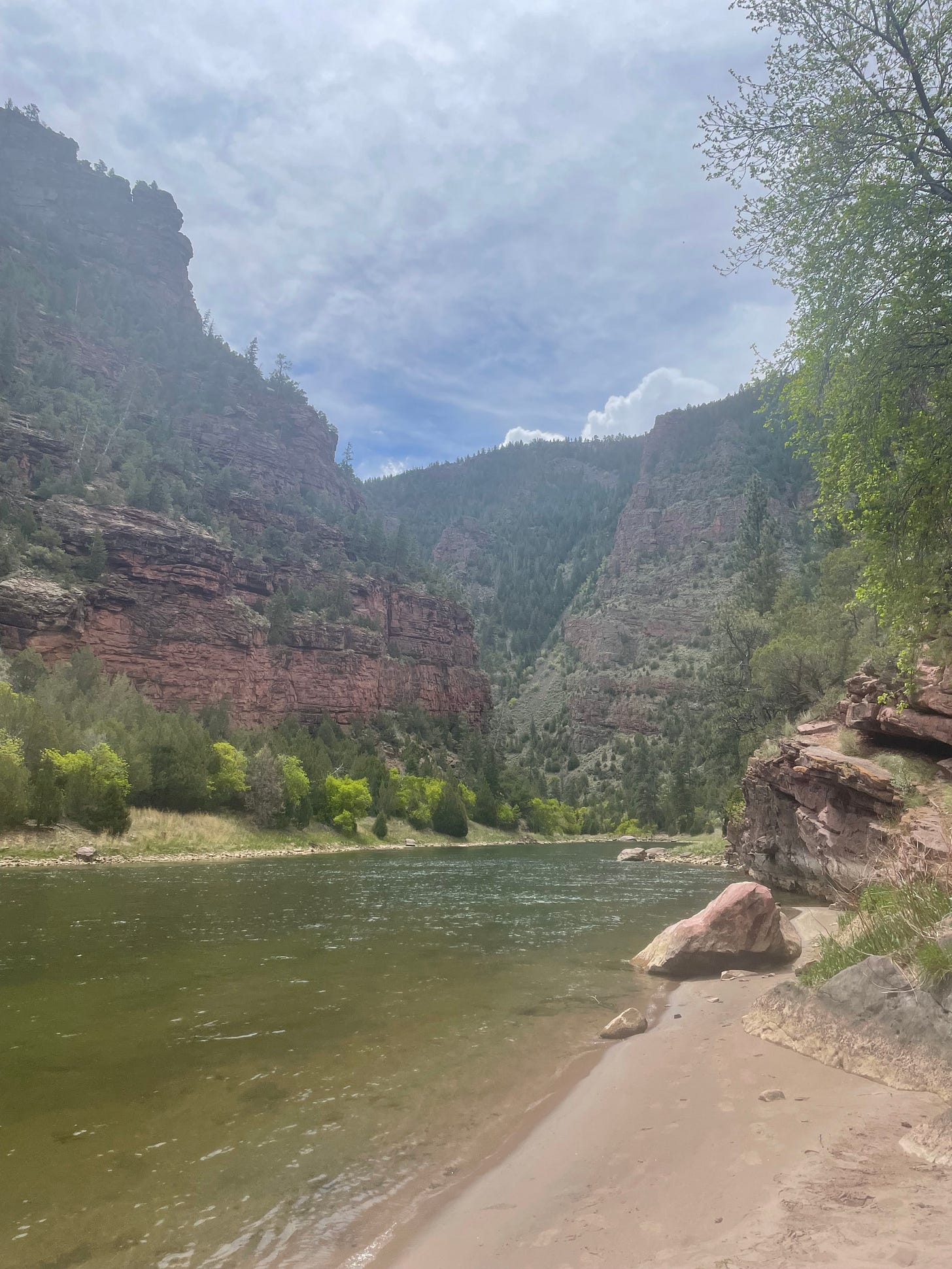we will conserve only what we love
For the past month, instead of writing, I’ve been on the river.
Specifically, I’ve been training to be a whitewater raft guide on the Green River in Utah, a job aspiration I’ve been cultivating for a year.
I’ve had such an amazing time learning how to read the water, seeing canyon views that are only accessible from the river, and hearing stories from the veteran guides.
But it’s not exactly a career in environmental science. I’ve been on the receiving end of confusion and skepticism when people hear that I spent 6 years in school just to end up living out of a camper and paddling a boat all day.
There is an assumption that higher education is intended to provide you with the most prestigious, high-paying, impressive job on the market, and there’s nothing wrong if that is your goal.
But the more time I spent learning about ecology, the more I wanted to interact with it, to immerse myself in it. It felt counterproductive to spend 6 years learning about the thing I love only to sit behind a desk and engage with it through a screen.
The reason I chose to study environmental science in the first place was because of my experiences in nature.
When I was a kid, I was lucky enough to go camping with my family every year, to take road trips to national parks, to go on whitewater rafting trips.
I fell in love with the natural world; I wanted to know how it worked, how to protect it.
I like to think that by raft guiding I can inspire the same enthusiasm for the environment in others. I can encourage people to think deeply about their place in the natural world, how they use resources like water, and what they can do to preserve beautiful and important places for future generations.
There is a quote by Senegalese forestry engineer and environmentalist Baba Dioum: “In the end we will conserve only what we love, we will love only what we understand, and we will understand only what we are taught.”
On river trips, we teach guests about the history of water politics in the West. How the Colorado River is divided and claimed, and how climate change and overuse threaten our resources.
We point out all the rock layers in the canyon, each hundreds of millions of years old, and explain how the formations came to be, what fossils might be found inside.
We talk about invasive plants on the river banks and invasive fish in the water. We talk about measures we can take to stop them, to encourage the native ecosystem to thrive.
And by learning this information, not from a book, but from within the river corridor itself, I hope that people come to understand the importance of the natural world around them and feel moved to conserve it, even in a small way.
Outdoor recreation can foster a love for the environment and inspire generations of scientists and activists. After all, it did for me.
So while I’m certain that I’ll continue to pursue environmental science and research ecology, right now I’m learning from the river and teaching others to do the same.




